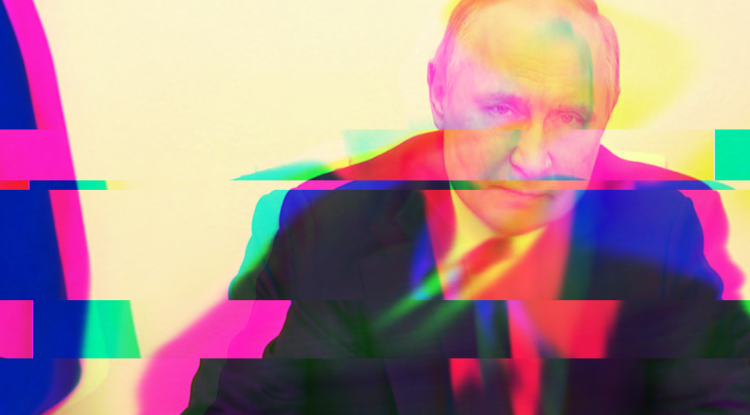Historian Sergey Bondarenko explores Putin’s usage of the term “national traitor” in an effort to identify who it may refer to. The Russian president has repeatedly used this cliché from the vocabulary of German National Socialist Party to label opponents of his actions against Ukraine.
It is difficult to say anything new when you’ve held power for more than 20 years. Vladimir Putin first spoke about “national traitors” in 2014, after the annexation of Crimea:
“Some Western politicians are trying to scare us not only with sanctions but with a prospect of aggravation of [our] internal issues,” Putin said then. “It would be good to know what exactly they imply: action by some fifth column, national traitors of all kinds, or they think that they will be able to affect Russia’s socio-economic situation and thus provoke people’s discontent. We find such statements irresponsible and clearly aggressive, and we will respond to them properly.”
Eight years later, when the Russian army is waging the war in Ukraine and Western sanctions have stormed the boundaries of McDonald’s eateries in Moscow, President Putin is bringing up “national traitors” and the need for “self-purification” once again.
The word “national traitor” (Nationalverräter in German) literally resides in the political vocabulary of Mein Kampf’s author. In his 2014 article on Putin’s interpretation of the German Newspeak, philosopher Michail Yampolsky correctly reminded that the term “national traitors” had been used in Germany even before Hitler, mostly when referring to politicians who signed the Versaille Treaty in 1919. But it became much more common when the National Socialists seized power. This is how it acquired its peculiar flavor—the term is very emotional but devoid of any specific meaning. Who betrayed whom when? Which nation is supposed to have been betrayed?
“Historical content is replaced with a vague, fuzzy image filled with emotional overtones,” Yampolsky wrote. “The word ‘traitor’, easily understandable and extremely negative, is associated with the idea of the nation and Nazism at the same time. But that is exactly the purpose of such word usage.”
The original German national traitor betrayed not only and not so much his “nation” but, first and foremost, the “National Socialist Party.” And that was part of the language play eliminating the difference between these two concepts. In the ideal isolated system the Führer was tantamount to his party, while the party held the monopoly on employing violence against “traitors.”
Another author, researcher of the historical language of terror Igal Halfin, warns against making a direct correlation between Putin’s policies and those of his “grand predecessors,” Stalin and Hitler. He maintained that direct borrowings from the totalitarian language or rhetoric were “quotations” rather than “repetitions,” essentially a postmodernist gesture implying that the audience was familiar with the original. There is no need to literally reproduce the Great Purge or the “final solution” on their original scale—just hinting at them is sufficient. Halfin was talking about this in his lecture on the concept of guilt and Soviet subjectivity, in “peaceful” 2016. Do we have grounds to believe that now, six years later, Putin, with his affection for peppering his speeches with “national traitors” here and there, has any sense of historical memory and critical thinking?
In his last pre-war “historical” speech on February 22nd, Vladimir Putin spent much time on professing his aversion to modern Ukraine’s state boundaries. His logic suggested that Ukraine as a polity has never existed. There was only “historic Russia” where Ukraine was just one of its parts.
The problem is that no one, including Putin himself, can say which Russia he is talking about. There was the Russian Empire until 1917, then there was the Soviet Union, which was then torn down by its Western enemies—and now it finally strives to reconstruct its “national boundaries” as seen by Putin. But which boundaries? Imperial? Soviet? Those of Kievan Rus’? And who is there to betray? The heritage of Varangian dukes or that of Soviet General Secretaries?
If it is about betraying “Russians,” they are already dying in this war and persecuted when trying to stop it. If it is about betraying “Ukrainians,” it is their land which another country’s army invaded, it is them who are fighting, dying, or fleeing from death.
Putin’s “national traitors” could not betray anyone even if they wanted to, because 20 years of his rule have failed to create any “national” community one may renounce. They hail from “historic Russia,” just an empty figure of speech, just another political cliché so characteristic of totalitarian societies.
The opinion expressed in this publication is that of the author and does not necessarily reflect Holod’s opinion.

